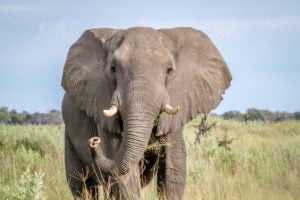
Glue traps, also known as glue or sticky boards, are trays coated with an extremely strong adhesive. Any animal who touches one becomes stuck and cannot escape.
Depending on how frequently the trap is checked, animals can be stuck anywhere from hours to days. Trapped animals struggle to free themselves, some rodents break bones and tear off, or even bite through, their own limbs in a desperate attempt to free themselves. Most often death comes from a combination of exhaustion and dehydration.
Glue traps are indiscriminate. Non-target animals have become trapped, including protected species like wild birds and bats, hedgehogs, fox cubs and even pet cats. The Scottish Animal Welfare Commission has concluded that there is “an undeniable risk of capture of non-target species”.
Advocacy efforts by HSI and other groups have been successful in bringing about legislation to ban or regulate the use and sale of glue traps. Legislation to ban the use and/or sale of glue traps is in place in several countries, including England, Scotland, Wales, Ireland, New Zealand, the Australian state of Victoria and Iceland. We want to see a complete ban on the sale and use of these cruel, indiscriminate and indefensible traps, due to the suffering they cause to animals. Read our Humane Society International/UK report, ‘The Case for a UK Ban on Rodent Glue Traps’.
There are non-lethal ways of dealing with unwanted rodent visitors that are not only more humane, but also far more effective in the long-term, too. Read more about humane rodent solutions.
Where is it illegal to use or sell glue traps?
Several countries have already acted to ban or regulate the sale and use of glue traps on animal welfare grounds.
- Australia: The state of Victoria has regulated both the sale and use of glue traps.
- England: Glue Traps (Offences) Act 2022 (legislation.gov.uk) 2022 banned use of glue traps to control rats and mice without a licence. Licenses to use glue traps are only issued to rodent control professionals, in exceptional circumstances and where all alternative methods are impossible or have failed. Anyone applying for a licence to use a glue trap must complete required training and meet specific requirements, including the need to carry out regular inspections of the trap, keep detailed records and prevent the capture of non-target animals.
- Iceland: The Icelandic Food and Veterinary Authority announced the new ban citing Article 28 of Iceland’s animal welfare law, which makes it unlawful to use rodent control methods that cause unnecessary entrapment or pain.
- Ireland: Glue traps are banned under the Wildlife Act, 1976, which forbids the use of certain traps ‘except where authorised in exceptional circumstances’. To date, no authorisations have been granted and since 2008 there have been eight prosecutions for the illegal possession of glue traps.
- New Zealand: Outlawed the purchase and use of glue traps by members of the public since January 2015, under the Animal Welfare (Glueboard Traps) Order 2009.
- Scotland banned the use of glue traps in 2024, but the Scottish government’s request for an exemption to the Internal Markets Act was rejected, meaning that a ban on glue trap sales was blocked.
- USA: Two cities (Ojai and West Hollywood) have banned the sale and use of glue traps.
- Wales: Banned all use of glue traps in October 2023.
More you can do
Although glue trap use is banned in Scotland, Wales and England (unless under licence in England), they are still commonly found for sale in shops and online. Not only is anyone who uses a glue trap or sticky board at risk from prosecution, they are also condemning animals to a slow and painful death.
- Seen glue traps on sale? Send us the details info@hsiuk.org and we will write to the supplier, to highlight the cruelty involved, outline the relevant legislation and ask them to stop selling glue traps.
- Read our glue trap FAQs
- Learn how to help an animal caught in a glue trap
Thank you for taking a stand to help animals and for supporting our campaign to end the sale and use of glue traps!









